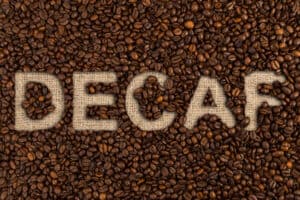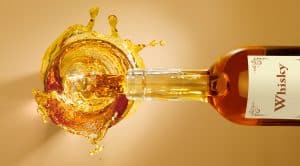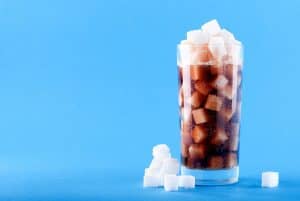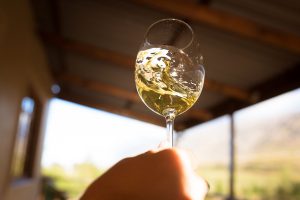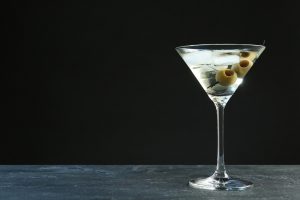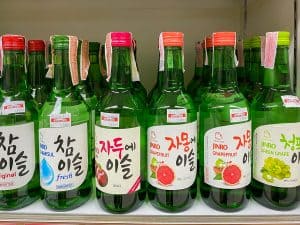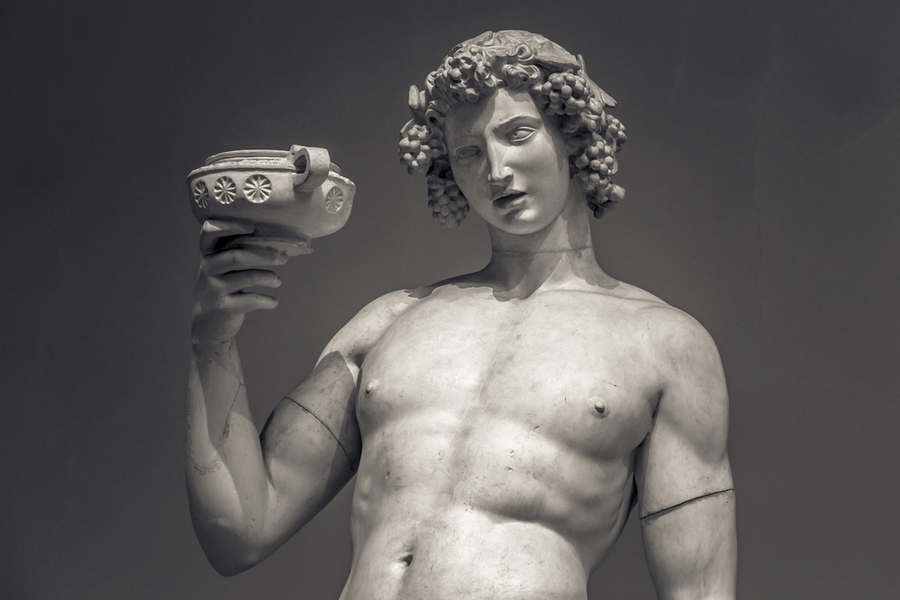
The word spirit can mean a lot of things. It may refer to a part of the Holy Trinity, everybody’s favorite Disney horse by the same name, and even a distilled alcoholic beverage. This leaves more questions than answers, though.
Why is liquor called spirits?
Before we can get to the word spirit, we need to consider where the word alcohol comes from because the two go hand in hand. The term alcohol has one of two possible sources, and one is more likely than the other.
It is derived from the Arabic word al-ghawl, an intoxicating demon or spirit that takes over the body. The other option is also Arabic but refers to the kohl eyeliner Egyptians used, or al-koh’l, which was derived through sublimation first and later distillation.
We’ll leave it to you to decide which is more likely.
On the other hand, spirits derived from fermented products capture the product’s essence or ‘spirit.’ Essentially, it’s ‘soul.’ if you will. Thus, distilled (hard) liquor may also be referred to as spirits.
We’ll examine the origin of the word alcohol because that’s where the spirit of our article is hiding. Next, we’ll go on a bit of a time travel to see how the word spirit may have ended up referring to liquor and debunk some theories along the way.
Alcohol and Spirits Are Alike but Different

Before we try to uncover why liquor is called a spirit (usually referred to in plural form, spirits), we need to understand how alcohol got its name.
The word alcohol is much older than spirit Nobody is sure how the word came about. Still, there are two main theories we’ll unpack below.
Al-Ghawl, the Demonic Spirit
First up is a demon, or spirit, from the Quran, which refers to an intoxicated person being ‘possessed’ by a demon (or spirit). This reference is found in Chapter 37, verse 47. The link is self-explanatory: alcohol (the drink) and the al-ghawl demon (or spirit) cause drunkenness.
This theory is not widely accepted, as we’ll see in the next entry.
Al-Koh’l: Eyeliner Derived by Distillation
Al-koh’l is the word for eyeliner, with koh’l meaning to stain or paint. The compound was made from several carbon-based compounds, including cerussite, phosgenite, galena, cerussite, malachite, and stibnite.
First, the substance was produced through sublimation, when a substance transitions directly from solid to gas or vapor stage, but later distillation took center stage. Sublimation looks similar to distillation. Various groups of people around the world around the same time may have also discovered distillation.
As time progressed, theorists have suggested that al-hoh’l referred to any substance made through distillation. The word alcohol entered the English language during the sixteenth century. It was used to describe the ‘essence’ or ‘spirit’ of a substance, such as ‘alcohol of wine.’
Perhaps, because languages evolve, the term spirit became the common word when referring to the particular essence or spirit of the substance it was derived from, as we’ll see in the next section.
Another option is that the ancient cultures believed in both good and evil spirits, with the former protecting one from harm. In ancient Egypt, kohl eyeliner was essential in protecting people from contracting diseases that could enter the eye when the Nile flooded its banks.
The eyeliner became a protective ‘spirit’ warding off diseases.
Considering Spirits

While the origin of why we call liquor spirits is lost to history, some theories can help us unravel why it is called spirits. So, let’s jump in our time machine and travel a bit through history.
Ancient Greece
Our first stop is in ancient Greece to visit Aristotle. The term spirit or spirits is attributed to Aristotle, who famously thought that when we drink distilled liquor, we’re ingesting a ‘physical spirit’ (as far as a metaphysical entity can become physical) into our bodies.
Remember the ‘spirit’ of wine’ from earlier; that’s what he’s referring to—ingesting the life essence of the distilled product.
The problem with this theory is that the ancient Greeks instead relied on fermentation to produce beer and wine. Still, conclusive proof has yet to be found where ancient Greeks distilled spirits at significant volumes. It wasn’t a common practice there, either.
However, Aristotle wrote about desalination through distillation in his treatise Meteorologica, and Greek sailors saw the potential in distillation to create drinkable water from salty seawater.
Additionally, Aristotle was clever and would have used the proper Greek word for spirit (which can also be translated as soul, wind, or breath). The word is pneúma (πνεúμα).
Biblical Times
After visiting ancient Greece, we fast forward about three centuries to the time of the first Pentecost described in Acts 2:1–13, but especially in verse 13 when a man mocks the believers speaking in tongues, remarking they have become intoxicated by consuming too much wine.
Five images of the Holy Spirit are identified in the New Testament: a dove speaking in tongues, wind, fire, and water.
The mocking bystander thus mistook the speaking in tongues as a sign of alcohol intoxication. It is not difficult to conclude that the Spirit ‘intoxicated’ the people. Aristotle did the same thing by believing that a person can ingest a spirit when they drink alcohol.
Again, this is probably an implausible theory, and we’re back at the drawing board.
The Middle Eastern Alchemists
We still don’t have a conclusive answer. Still, when we look at the history of distillation, we’re certainly inching toward one. The history of distillation and the associated equipment is shrouded in mystery, and you can read a brief history here.
Distillation can be traced back to China during the Han dynasty. It probably found its way to the Middle East through trade or deliberate cultural exchanges.
Alexandria in Egypt was a scientific and knowledge center for a long time. Two persons, in particular, stand out—Maria the Jewess and Zosimos of Panopolis. It is believed that Zosimos created the first accurate illustrations of distilling equipment.
We do not know if Maria or Zosimos were directly involved in the invention of the apparatus. Still, as time progressed, the apparatus found its way into Europe, and the knowledge and device were passed along by Arab scholars. How and when this exchange of learning took place is not clear.
Arab scholars and alchemists were not interested in turning base metals into gold like their European contemporaries; they focused on creating medical elixirs. These elixirs were used to treat physical and spiritual diseases to an uncorrupted state of being.
To get the desired ingredients for their medicines, they distilled the raw ingredients to obtain the essence or ‘spirit.’ You can read a fascinating account of how food, elixirs (derived from distillation), and the divine all played a role in Middle Eastern thought, alchemy, and daily life here.
The purest form of an ingredient could be obtained through distillation—the product’s essence or ‘spirit’ captured.
Why Is Liquor Called Spirits?
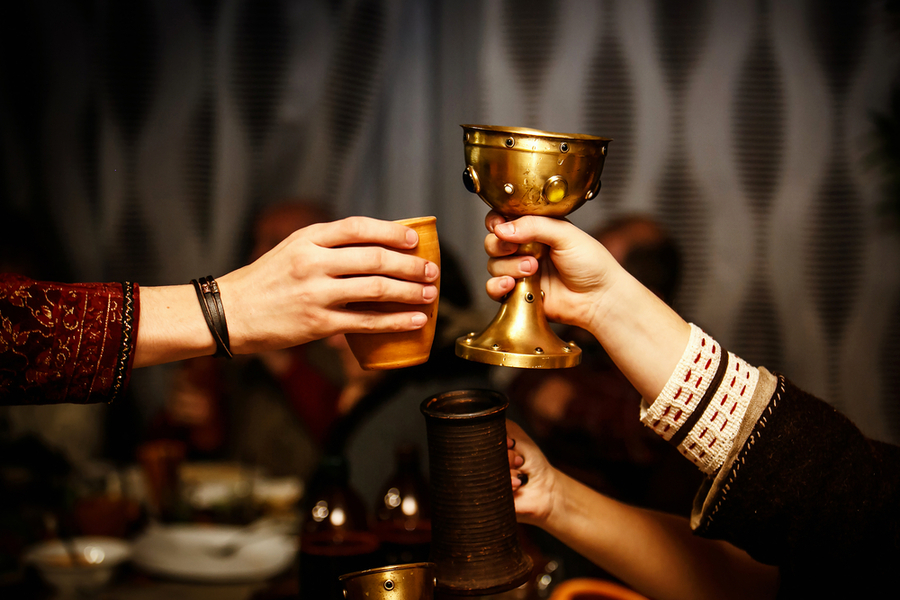
Remember, the Latin word for spirit is spiritus which means ‘breath.’ The Latin verb spirare means ‘to breathe.’
On a cold day, when we breathe outside, our breath condenses, and we can ‘see’ our breath (or spiritus). The same goes for when liquids are distilled—they start to ‘breathe,’ and medieval alchemists recognized this magical element of distillation.
Alchemists heated a base alcohol liquid, fermented wine, to extract the most crucial part—alcohol. The vapors or breath or spirit of the base alcohol would thus breathe and, when cooled down, condense into more potent liquid alcohol.
This newly captured ‘spirit’ could then be used in all kinds of experiments (personally, my favorite experiment is trying different types of (distilled) whiskies to test their spirit. Wink-wink).
You’ll have to indulge us for a moment. When you think about it, distillation draws the essence or spirit out of a raw fermented or macerated product, so are distillers secretly exorcists who are driving good spirits out of the ingredients?
People believed that everything—living or not—had a spirit and thus cognizance. Italian monk Lorenzo Spallanzani believed this and even published a book called Dissertations Relative to the Natural History of Animals and Vegetables.
Edgar Allan Poe’s character, Roderick Usher, in The Fall of the House of Usher, certainly believed that the house, stones, and fungi spread over the exterior of his home had a spirit and thoughts of their own…
Distilled liquor, also known as hard liquor, has to go through distillation to obtain the purest form of the ‘spirit’ of the ingredients.
People thought distilled liquor contained the essence of the ingredients. Others thought it was a literal spirit that entered the body when you consumed distilled liquor.
Conclusion
Alcohol is part of human history stretching back into the mists of human history. Although distillation was not used initially to create hard liquor or spirits, it was eventually applied to produce drinks with an extra alcoholic kick.
Fermented alcoholic beverages also saved lives when water was infected, and spirits saved countless sailors’ lives when they went on long voyages because they did not spoil.
We don’t exactly know how the word spirits became associated with distilled alcoholic drinks, nor do we know precisely how alcohol even entered the English language. We know that for liquor to be called a spirit, it has to be distilled.



